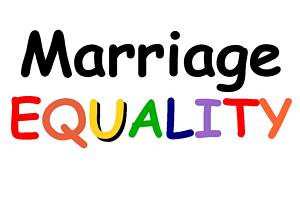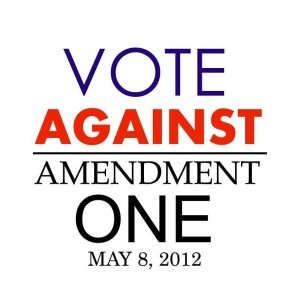From my post in Huffingtonpost.com:
I woke up at 3:00 a.m. in the well-used Community Center of Bernal,
New Mexico, for the first day of my recent pilgrimage to El Santuario de
Chimayo in northern New Mexico. After a quick morning prayer and
stretching exercises, and a delicious meal of breakfast burritos, my
companions and I set out on the road to Las Vegas, the first leg of our
journey to Chimayo, by 5:00 a.m. It was chilly outside because the sun
had not risen yet. The sun rose a few minutes after 5:30 and within a
half hour started to warm up the earth. Why Chimayo? The sacredness of
Chimayo among Christians comes from the very earth itself that is said
to have healing powers, whether one comes with physical pain, emotional
needs, or spiritual wounds. I, along with a band of 31 other men of all
ages, walked over one hundred miles in five and a half days. Even though
I went on my first pilgrimage over 13 years ago, and have been on many
religious pilgrimages since then, the first day of a pilgrimage is the
most nerve racking. I openly wonder if my aging body will be up to the
physical challenges, and if my spirit will shun or embrace the mysteries
that I will encounter along the way. Each morning, questioning my
sanity, I knew that I could only complete it one day at a time, one step
at a time, to quote my 12-step friends. Pilgrimage begins simply with
the first step forward, followed by another, and nothing is ever the
same.
Seventeen years ago I awoke early one morning and began my coming out
pilgrimage. Though I had long imagined what it would be like coming out,
the very act of coming out of my closet brought both unbridled joy and
literally scared me to death. It was these polar opposite feelings that
effectively stopped me from leaving the closet's narrow, loathsome
confines. I was paralyzed emotionally, wanting to embrace the emotional,
relational, intellectual, spiritual, and physical attraction to men,
yet could not accept being gay because I believed society's and my
church's hateful condemnations against the "homosexual lifestyle." To
keep my mind from dwelling on being gay, I busied myself with the
academy where I worked, the denomination I served, and the family I
loved, to fend off any rumors that I could be gay. But one morning,
after a year of counseling and months of strategizing, I simply left the
house I shared with my wife and kids, and moved to a small studio
apartment, never to return. Even though I was consumed with fear that I
would lose my place in the institution of higher education where I
worked, be defrocked as a minister, and lose my family, I nonetheless
could no longer live the lie I was trying to live. I wanted and needed
to live life as fully "me": a dad, professor, writer, pastor, partner,
and pilgrim who happened to be gay. As pilgrimage starts with a step
forward, so does coming out. And nothing is ever the same.
I live a pilgrim life, both as a Christian pilgrim and as a gay man. I
live in the amazing parallels between these two movements of body, mind
and spirit. Both pilgrimages start from a beginning point; are more
about the journey than the destination sometimes; use stories as a way
to navigate the way forward; require taking good care of ourselves; and
lean forward toward reaching a destination and a life radically
reformed. The close parallel of an actual pilgrimage and coming out is
more than mere metaphor: an intentional pilgrimage provides concrete,
tangible, markers by which one can discern where one is located on the
map of coming out.
The Beginning Point: A pilgrimage is privileged opportunity, because
not everyone gets the chance to go on an actual pilgrimage due to a lack
of time, money, or other practical impediment. It is also an extreme
challenge physically, emotionally, mentally, and spiritually. To walk
twenty-miles, day after day, is not part of my normal routine. As a
white Presbyterian pastor, I am the loco gringo (that's my pilgrim
name), who speaks little Spanish among brothers to whom it is their
first language. As the stranger from North Carolina, I am the guest, not
the host, and I am honored to be one who goes on pilgrimage with them.
From the start I immerse myself in the deep waters of the rich, dark,
mysterious Catholic life of northern New Mexico. I am inundated with new
sights, prayers, rituals, and songs (in Spanish). While my body is
weary my mind is wide-awake, keeping me from getting a good night's rest
before I begin an actual pilgrimage. What keeps me awake are "What If?"
questions demanding my attention: What if I get a blister on the first
day of pilgrimage? What if I stumble and hurt a knee or pull a muscle?
What new spiritual insights will I receive that will change my world as I
know it? What will be different about me at the end of pilgrimage?
The day I decided to step over the threshold of my self-imposed closet
was simultaneously horrific yet exciting. I was horrified at the
prospect of leaving all I had worked for: a happy family with a
wonderful wife I loved, and two adorable children. I was working at my
dream job at a major university, and was ordained a pastor in the
Presbyterian Church (USA). Yet I was putting it all in jeopardy because I
simply was not completely happy with my life. I felt incomplete, like I
was living a lie. In this configuration of being "family" I could not
fully give myself to a relationship in which I could be wholly myself. I
was excited about the prospect of no longer wasting energy in holding
together the closet of gloom, and giving myself over to other life
projects (being fully myself) that eluded me. The pilgrimage of coming
out meant that I could embrace the person God made me to be
whole-heartedly for the very first time. But how would I be different
in being unapologetically me? Would I recognize myself? Would my family
recognize me?
The Journey: The first day of the pilgrimage is all about the
physical for me, with my mind and spirit lagging except to buoy my
exhausted body. Bernal to Las Vegas is roughly 20 miles, and fairly
flat. The cool morning air gave way to New Mexico's dry heat. Walking
over a mountain pass would not come until day three, which is good
because by then I was almost fully physically adjusted to the act of
walking many miles. I began to adapt my life to the rhythm of the
pilgrimage: every morning begins with thirty minutes of silent
contemplation, which I throw myself into, listening to the syncopated
rhythm of many shoes hitting the soil with a full moon casting an eerie
shadow. Later, in English but more often in Spanish, we sang songs of
praise to God the Father, "El Senor," Christ the King, "El Christo Rey,"
and Mary, "Madre Maria." As a Protestant, I fumble through the
recitative prayer of the Rosary, learning to keep up with where we are
with the bead count by my last day.
Unlike the pilgrimage to Chimayo, I do not remember the day I put myself
into a closet. The closet was already fitted and built around me before
I was aware of it. From the first day when I was twelve years-old and
realized that I was attracted relationally, emotionally, physically, and
intellectually to boys my age, I was stuck in not knowing what to do
with the new sensations and feelings in me. There were no stories on
television, movies, children's stories, or young adult books to help me
navigate through this sea of new feelings and thoughts as a young boy
who was gay. After years of therapy, struggling with a sense of
abandoning my family, fearing reprisal from my denomination, I left one
morning after breakfast, never to return back to the house-as-home.
That night I moved into a rented one bedroom studio apartment in Chapel
Hill, NC, not too far from the children. I was excited yet scared,
wondering aloud at times, "My God, what have I just done!" The heavy,
complicated lock on my gay closet fell off the closet door. I took the
first few steps, and soon miles, away from the shadow existence of a
claustrophobic life into the bright sunlight of hope.
Stories: Over the six days of being together on pilgrimage, there was
plenty of time on the road and off the road to talk with one another
about what we missed about home, gather in small groups to discuss the
conditions of the trail, how our bodies were faring, or dreaming about a
hot shower (and a cold beer) aloud. While we awoke at 3:00 a.m. and
were on the road by 5:00 a.m., we were off the trail and sat down
wherever our feet landed, massaging our sore limbs and lancing blistered
feet by 1:00 p.m. or a little later each day. "No pain, no gain" made
more sense on pilgrimage. On the pilgrimage, in between the first thirty
minutes of silent contemplation, and another thirty minutes of praying
the rosary or singing songs, there was always time for talking. We share
stories of either previous pilgrimages, or gossip about people who had
been on pilgrimage before but were not able to be with us this time.
While Facebook makes sharing personal stories on a one-to-one basis
difficult, pilgrimage provides a precious opportunity to share intimate
stories of life. On pilgrimage I find people more willing to share
stories of profound vulnerability, to sigh deeply, because they know
they will most likely not meet the other pilgrim ever again. We share
stories of a love life gone awry; harrowing tales of inclement weather
on previous treks; the "good, bad, and ugly" parts of family life back
home. I listened intently to stories from those who walked this trail
before, wanting to hear which is the longest day for walking, or the
height of an upcoming mountain pass we would be crossing. Stories bind
us together as a community of brothers.
The stories of other gay dads, married, with children was the only
way I could navigate my way out of the closet. I studied carefully how
society at large and the Church in particular reacted to out gay men,
learning from others how I might be perceived and treated in my
community. I devoured David Leavitt's The Lost Language of Cranes,
empathizing with the closeted gay father figure who would find solace in
the dark confines of adult movie theaters, as he secretly envied the
open life of his gay son. I freaked out when viewing the dramatic
British movie "Hollow Reed," as the gay dad and his partner try to save
the life of his young son who was being physically bullied by his former
wife's boyfriend. While there seem to be plenty of stories of single
young men, stories of gay dads were rarer. Perhaps I need to create an
"It Gets Better" series of gay dad stories for dads who are in the
process of coming out as an emotional map.
Taking Care: After a long day -- 3:00 a.m. wake-up call, walking,
eating great meals, participating in worship along with morning and
evening prayers, and showering--there is always time at night to check
feet for blisters and ankle sprains, shin aches, and knee problems.
There are people pre-assigned on pilgrimage to carry a medicine bag full
of ointments, bandages, moleskin, and Ben-gay cream for sore limbs. I
watch the care and healing touch of Roger who gives me a new
understanding of brotherly love as he massages a foot, carefully threads
a needle and then lances a blister, applies a bandage to keep the
wounded site clean. On this pilgrimage, two men unfold a massage table,
in which all pilgrims are given the gift of a massage of thigh, shin,
calf muscle, and feet with cocoa butter. All we have to do is bring our
towel to spread on the bed itself, and the magic begins! By the end of
the pilgrimage young men take care of the feet of us "older men," a
practice they learned from their elders.
Along the coming out pilgrimage trail it is important to take care of
ourselves as we walk along harrowing stretches of darkened roads, the
once-comfortable hiding place of the closet falling down around our
ears. While counseling is helpful through this crisis of change, it is
extraordinarily helpful to have others who have come along a similar
pathway to walk with us. Bandaging bruised egos, and reminding ourselves
that another person's crisis is not our problem simply because we're
"out" is a great help. Lancing a blister, where we keep butting up hard
against those who call our "lifestyle" sinful is a gift. Pulling out
splinters from the shards of the wooden closet of hate I used to live in
makes moving forward easier. And a massage is simply icing on the
cake.
Reaching Destination: Throughout the weeklong pilgrimage to Chimayo I
depended upon rituals, prayers, and songs to buoy me along the way,
helping to redirect my attention from my tiredness to realizing the
beauty around me as I walked. I gained insight to the audacious nature
of God by simply realizing that Jesus himself was a pilgrim throughout
his known ministry, never owning a home but living life on the road,
depending upon the goodness of others. The late-Brother Roger of Taize
rightly called Jesus the Pilgrim God. There is nothing so magnificent
yet disheartening as getting to our destination. The morning of our last
day together, walking nine miles is incredibly bittersweet. I know I'll
never walk with this exact band of people again. I won't have the
opportunity to sing the songs we've been singing all week with my
friends. I'll miss someone preparing every meal for me throughout the
week. The confraternity of men happens but for a brief moment in life,
then disappears. It is illusory the rest of the time. Over one hundred
and sixty people walked over one hundred miles over five days, up and
over mountain passes, through chapels and churches, in the hot northern
New Mexico sun. At El Santuario de Chimayo we enter the small sanctuary
itself, half filled with cheering and singing pilgrims from other parts
of New Mexico, with the Mariachi-like band playing "Que Viva Christo
Rey!" An official of the Catholic Archdiocese of Santa Fe places
rosaries from the Camino de Santiago de Compostela around our necks.
Various crosses, images of Our Lady of Guadalupe, and other memorabilia
are gathered in central place during our closing Mass together. Go in
peace.
I'm now out of my once constrictive closet. The boards, nails, screws,
and locks were left in garbage cans along the way. I self-identify as a
dad, a pastor, a writer, a professor, a partner, and a pilgrim who is
gay. In my daily prayers I quietly voice my gratitude to God for making
me who I am. I love who I am today. Still ordained in the Presbyterian
Church (USA), I now work at another university, teaching ethics and
world religion to new students every semester. My children are grown. My
former wife and I are friends, and my partner and I live in the
countryside with our dogs. And now I write several blogs on my stories
of being a gay dad, my letter to those in the closet to come out and
move on. Perhaps take time to swim in the ocean of full acceptance,
where the water is just fine. The pilgrimage of coming out is arduous
but richly rewarding in the end.
Click here for blog:
http://www.huffingtonpost.com/brett-webbmitchell/the-coming-out-pilgrimage_b_1859061.html













